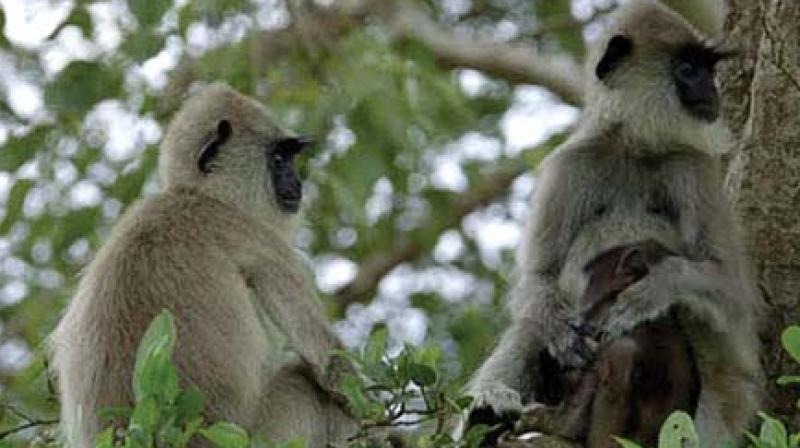Langur menace haunts areca growers

Shivamogga: If elephants are raiding crops elsewhere, the common langur is proving a nightmare for areca growers in Shivamogga. The little animals often help themselves to the areca flowers and nuts, while they look on helplessly as killing them is punishable under the law with the langurs being a protected species under the Wildlife Protection Act.
Once a shy primate, mainly confined to the upper canopy of trees, the lion-tailed macaque or langur, has now turned social thanks to deforestation and even begs for food from travellers along the Agumbe ghat.
The little monkeys are also seen feeding on flowers of the arecanut tree, locally known as singara and on tender nuts. They sip the juice from the tender arecanut and throw it away, laments Mr Ramesh Hegde, president of the Zilla Adike Belegarara Sangha, an organisation of arecanut growers.
Agumbe is particularly affected, according to Mr.N. Prakash, a professor in animal pharmacology at the Veterinary College, Shivamogga, who explains that deforestation has distorted the food habits and behavioural patterns of the wild animals in the Malnad and the farmers are paying for it.
The fact that arecoline is nitonic acid-based and has a psycho-stimulant quality, could be drawing the langurs to the arecanut plantations, in his view.
While crop loss caused by wild animals is usually compensated by the forest department, the arecanut growers say it is refusing to pay for damage caused by langurs as it is a semi-domesticated animal that can live both in forest and in human habitations.
The Malnad Arecanut Marketing Cooperative Society (MAMCOS), which represents the growers, has written several letters to the forest department over the past two years seeking compensation for the crop loss caused by langurs, but has received no response, according to its managing director, Nagesh Dongre.
The growers, however point out that in many North Indian states, crop loss caused by the common langur is compensated.

